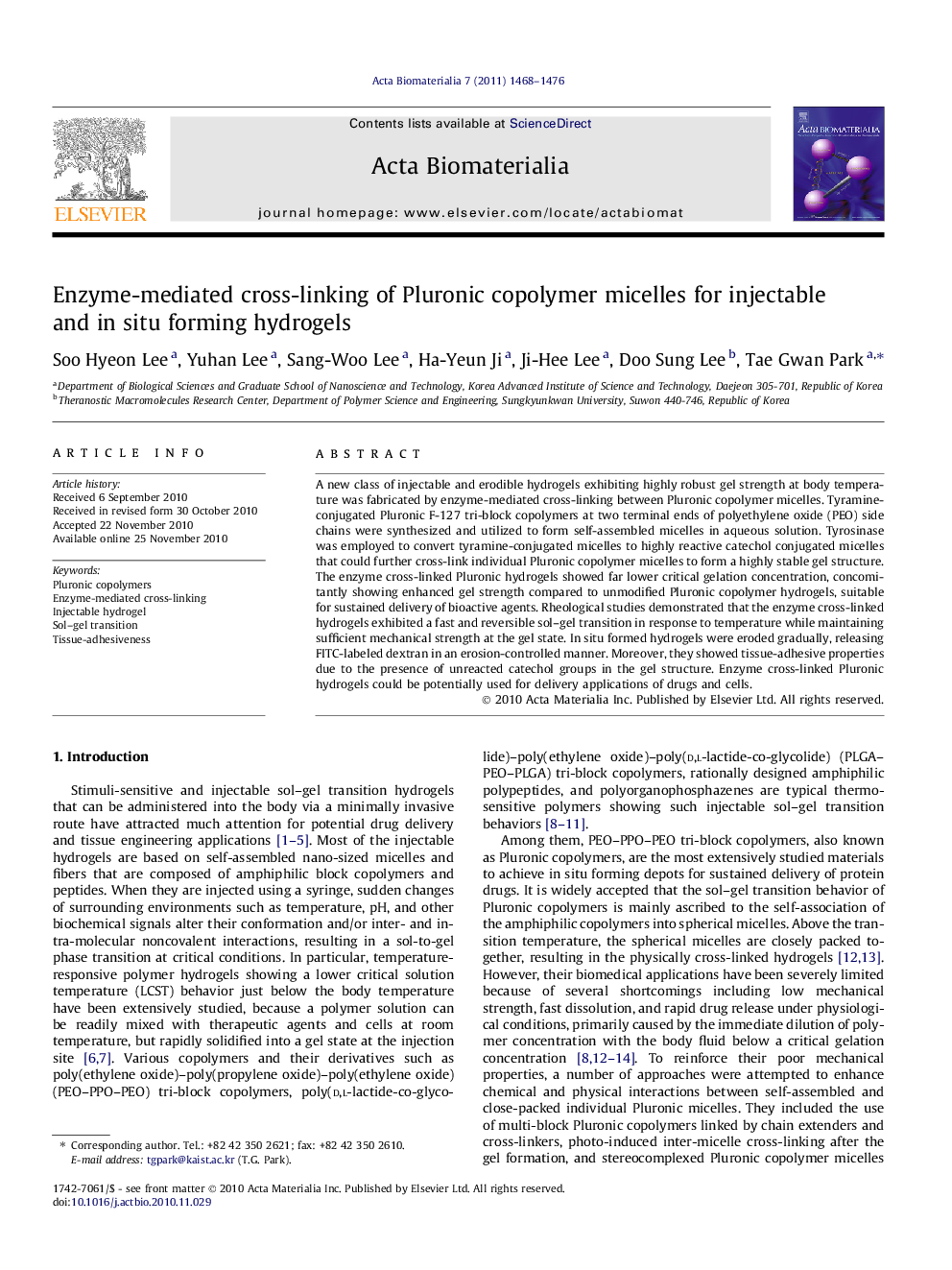| Article ID | Journal | Published Year | Pages | File Type |
|---|---|---|---|---|
| 10160245 | Acta Biomaterialia | 2011 | 9 Pages |
Abstract
A new class of injectable and erodible hydrogels exhibiting highly robust gel strength at body temperature was fabricated by enzyme-mediated cross-linking between Pluronic copolymer micelles. Tyramine-conjugated Pluronic F-127 tri-block copolymers at two terminal ends of polyethylene oxide (PEO) side chains were synthesized and utilized to form self-assembled micelles in aqueous solution. Tyrosinase was employed to convert tyramine-conjugated micelles to highly reactive catechol conjugated micelles that could further cross-link individual Pluronic copolymer micelles to form a highly stable gel structure. The enzyme cross-linked Pluronic hydrogels showed far lower critical gelation concentration, concomitantly showing enhanced gel strength compared to unmodified Pluronic copolymer hydrogels, suitable for sustained delivery of bioactive agents. Rheological studies demonstrated that the enzyme cross-linked hydrogels exhibited a fast and reversible sol-gel transition in response to temperature while maintaining sufficient mechanical strength at the gel state. In situ formed hydrogels were eroded gradually, releasing FITC-labeled dextran in an erosion-controlled manner. Moreover, they showed tissue-adhesive properties due to the presence of unreacted catechol groups in the gel structure. Enzyme cross-linked Pluronic hydrogels could be potentially used for delivery applications of drugs and cells.
Related Topics
Physical Sciences and Engineering
Chemical Engineering
Bioengineering
Authors
Soo Hyeon Lee, Yuhan Lee, Sang-Woo Lee, Ha-Yeun Ji, Ji-Hee Lee, Doo Sung Lee, Tae Gwan Park,
